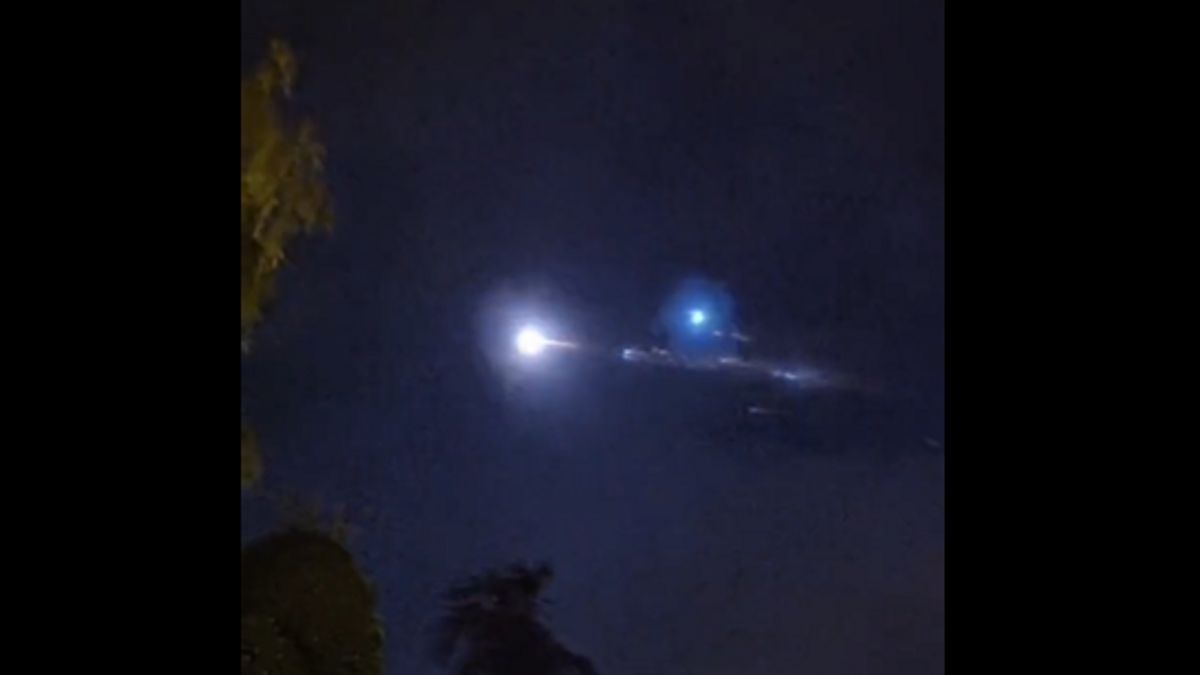JAKARTA - China's uncontrolled Long March 5B rocket has re-entered Earth's atmosphere over the Indian Ocean. The rocket landed somewhere near Sarawak, the Malaysian state on the island of Borneo.
US Space Command confirmed the rocket's re-entry at 12:45 a.m. ET, but it's still unclear where the debris landed. In a translated post on Weibo, China's Manned Space Agency said the rocket reentered near the same area and was mostly burning as it descended.
On July 24, China used a Long March 5B rocket to launch a laboratory module to the unfinished Tiangong space station. Unlike most rockets, the Long March 5B pushes the first stage into orbit as it delivers its payload.
This section, which is more than 100 feet long and weighs over 22 tons, orbits the Earth briefly until it falls back down to Earth, wildly and with no way to control its movement.
meteor spotted in kuching! #jalanbako 31/7/2022 pic.twitter.com/ff8b2zI2sw
— Nazri sulaiman (@nazriacai) July 30, 2022
Uncertainty about where the rocket will land created concern around the world last week, as projections of this rocket landing could be anywhere from Mexico to the southern tip of Africa.
This was China's third Long March 5B launches, marking the third out-of-control landing. In 2020, China used the Long March 5B to take the Tiangong core module into space.
Debris from the rocket landed on Ivory Coast, and although no injuries were reported, there was some structural damage. Last year, China launched its first lab module aboard the Long March 5B, parts of which ended up falling into the Indian Ocean.
While some Twitter account owners in Malaysia caught the re-entry of the rocket, with some believing it was a meteor.
Jonathan McDowell, an astrophysicist at the Harvard-Smithsonian Center for Astrophysics, believes that debris from the rocket could end up near Sibu, Bintulu, or Brunei - three cities located along the northern coast of Borneo. However, they believe it is "impossible" to land in a populated area.
SEE ALSO:
NASA administrator Bill Nelson responded to the uncontrolled landing in a statement on Twitter.
"The People's Republic of China did not share specific trajectory information because their Long March 5B rocket fell back to Earth," Nelson wrote. “All space exploration nations should follow established best practices, and do their part to share this type of information in advance to enable reliable prediction of potential debris impact risks, especially for heavy lift vehicles, such as the Long March 5B, which carries a significant risk of loss of life and property.”
Unfortunately, this is not the last out-of-control rocket to fall to Earth. China plans to launch its third and final module to Tiangong using the Long March 5B in October. They will use rockets once again to take the telescope into space in 2023.
So once again the people of the world are confused about where the rocket debris will land.
The English, Chinese, Japanese, Arabic, and French versions are automatically generated by the AI. So there may still be inaccuracies in translating, please always see Indonesian as our main language. (system supported by DigitalSiber.id)












